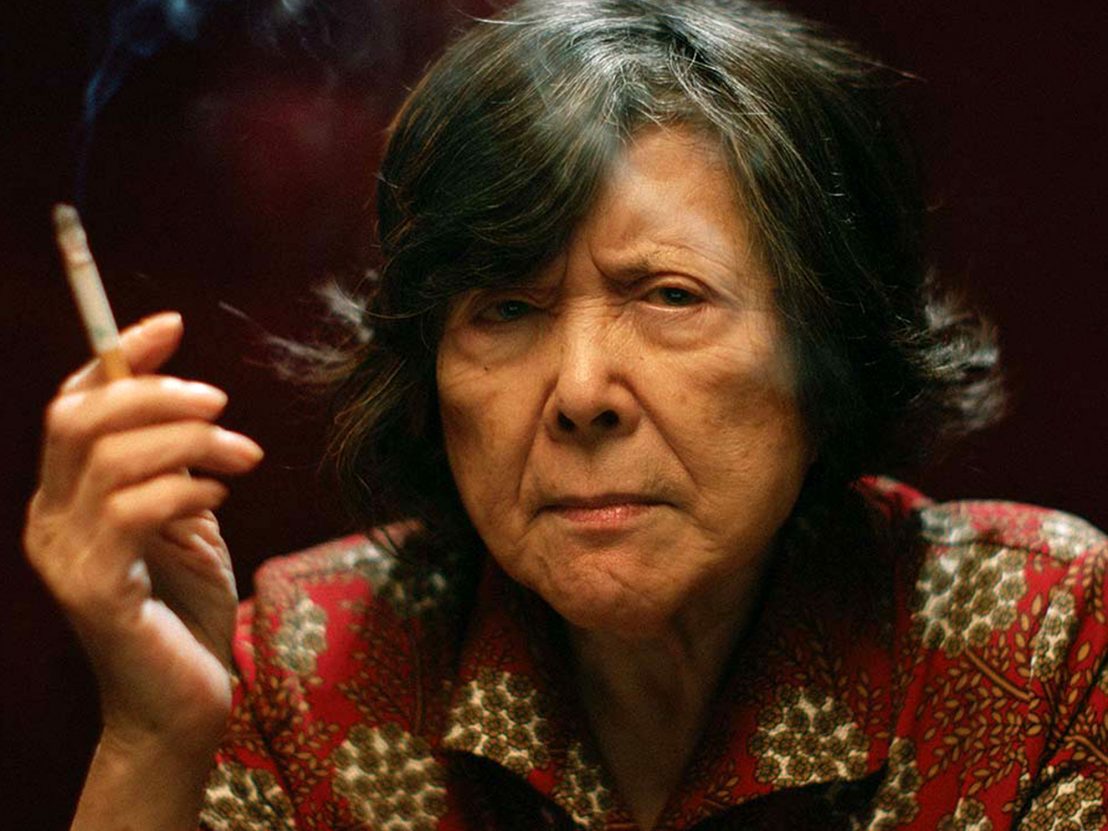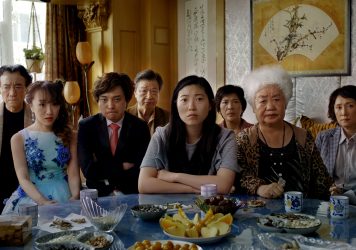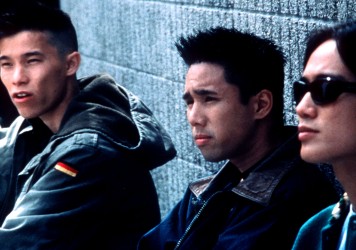
Writer/director Sasie Sealy discusses the making of her “risky” debut feature, Lucky Grandma.
On the bus to the casino, Sasie Sealy had a vision. “I don’t know if you’ve been on one in New York, or if they have them here [in London], but there are all these buses from Chinatown that basically take all the old people to gamble,” she explains, “They’re super cheap, and they advertise in all the Chinese newspapers.”
In the vehicle, surrounded by “a bunch of old grandmas and grandpas,” Sealy imagined the catalytic moment of her debut feature film: a duffel bag of money falling into the hands of someone it had never belonged to.
From this one scene, Lucky Grandma was born. The film is a Coen brothers-influenced comedy centered on the surly Grandma Wong (Tsai Chin), a chain-smoking Chinese widow living alone in New York City. Grandma becomes embroiled in a Chinatown gang war when, on her way back from a bad day at the casino, she happens upon a large bag of cash and takes it for herself with little hesitation.
When the notorious Red Dragon gang comes calling for their money, Grandma hires Big Pong (Corey Ha), a sweet-natured bodyguard from a rival gang to protect her. The story follows the unlikely pair through a series of capers through the city’s hair salons, mahjong parlours, and leisure centres, until Grandma is forced to face up to her theft.
Together with her collaborator Angela Cheng, Sealy wrote the script for Lucky Grandma in 2013. The text was inspired by soap operas, spoof movies about Hong Kong gangsters, and Agnès Varda, and is rooted in research on triads operating in Manhattan in the 1990s. For Sealy, the film’s setting is particularly important: “I feel like Chinatown is this almost imaginary place in film history; we wanted something that felt authentic, but still a little mythic.”
Sealy was inspired in particular by ‘Sister Ping’, a female snakehead who built an empire worth $40 million by smuggling immigrants into the country. “I was just taken with the idea of a woman running one of these gangs,” she says, “and this idea that she would have a kinship with Grandma in a way because she’d also be looking for respect, and making her own way.”
When the duo went about trying to secure funding for the venture, they ran into problems. “Nobody wanted to fund a movie about an old woman that was mostly in Chinese!” Sealy says, laughing. “No matter how funny it was. People would love the script, but they just didn’t know what to do with it.”
For a number of years, the project went into hiatus and Sealy began writing for TV. Then, in 2018, Cheng and Sealy put the script forward for AT&T and the Tribeca Film Festival’s ‘Untold Stories’ programme and won a million dollar grant to make the film. “It was a miracle. Very lucky.” Sealy winks.
Bringing aboard legendary actress Tsai Chin as the film’s lead was another such blessing. “A good friend of mine had gone to the 25th anniversary screening of Joy Luck Club last year, and Tsai was at the Q&A,” Sealy recalls. “My friend called me up immediately afterwards and said, ‘She seems pretty feisty to me, even though she’s old. I think you should talk to her.’”
Aware of the stigma the age of her central character had attracted when pitching around the script, Sealy was wary of casting too old. Indeed, early reviews have called the decision to even have written the 82-year-old lead part, “a risk unto itself.”
“Wait, who said that?” Sealy exclaims, her expression comically quizzical. She continues good-naturedly: “It was a risk. It was a total risk! Originally we were going to cast a 60-something-year-old because it was kind of crazy to make a movie with [anyone older], but I just wasn’t finding Grandma.”
But with Chin, the connection was instantaneous. “As soon as I met her I kind of just knew,” shrugs Sealy. “We had this epic four-hour dinner, where she seduced me, or I seduced her – one or the other – into doing this movie.”
Sealy always had a clear idea of who Grandma should be as a character. “When I roped Angela into writing it with me, we just knew all of these women in our lives that sort of became the same woman, in a way.
“There’s definitely parts of my mom in [Grandma],” Sealy continues. “Angela’s grandmother is in there for sure; a little bit of my grandma, but mostly the fact she was a smoker. There’s a stereotype of these quiet, subservient Asian women. I don’t know where this comes from,” she says, incredulously. “They are definitely not in my family.”
Lucky Grandma screens at the 63rd BFI London Film Festival on Thursday 10 October at 9pm, and again on Sunday 13 October at 6pm.
Published 10 Oct 2019

By Beth Webb
The American writer/director reveals how a lie allowed her to make this remarkable family drama.

By Jenna Mahale
The award-winning filmmaker on the intricacies of influencer culture and the emotional economy of the internet.

By Kelley Dong
The core message of Justin Lin’s 2002 film Better Luck Tomorrow is more vital today than ever before.